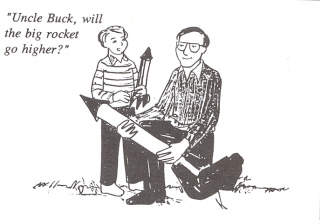RELATIVELY SPEAKING – THAT FAVORITE AUNT OR UNCLE
Some children are not only blessed with parents and grandparents who love them, but also have a “favorite” aunt or uncle who adores them. Often that aunt or uncle doesn’t have children of his/her own and has thus built an especially close relationship with a niece or nephew. You may wonder what the pleasures and pitfalls of such a special relationship may be.
For these aunts and/or uncles, it permits them to experience a kind of fulfillment in a segment of their own lives which they might not otherwise experience. At holiday times, birthdays, and even special trips, they may enjoy the companionship of a child whom they love and who loves them. For some, however, the joys are mixed blessings since they are also reminders that they will not or cannot ever have children of their own. For others, those blessings are only mixed with the relief that they chose not to have the responsibility or burden of actually parenting children of their own. The fun of being with their nieces or nephews only confirms for them that they’ve made the correct decision.
What are the pleasures and pitfalls for your children? Sometimes aunts and uncles without children of their own can give your children learning experiences, fun excursions, and even gifts that you may not have time or money enough to afford. Since you know that your sisters or brothers are enjoying your children and that they are benefitting from this special opportunity, you can be pleased for your children and for your siblings. Some aunts and uncles are wonderful role models for their nieces and nephews and share special skills or interests with them. If you are a single parent, and you have a sister or brother of the same gender as your child (and opposite of yours), it would be even more important that your child has same-sexed appropriate role model. An uncle or aunt might be ideal.
What are the risks of special aunt/uncle relationships?  Suppose your own sister or brother leads a life-style to which you would not like your child to be exposed: or what might happen if your child complaints to Auntie about how hard you are on him or her and she agrees with your child, taking his or her side against you? These would be major problems for you and your children since you would be likely to feel torn between wanting to be a good sister or brother and a good parent. Of course, you want to be a good sister or brother, but most important, you want to keep the power to guide your children’s lives.
Suppose your own sister or brother leads a life-style to which you would not like your child to be exposed: or what might happen if your child complaints to Auntie about how hard you are on him or her and she agrees with your child, taking his or her side against you? These would be major problems for you and your children since you would be likely to feel torn between wanting to be a good sister or brother and a good parent. Of course, you want to be a good sister or brother, but most important, you want to keep the power to guide your children’s lives.
Here’s the hard part! If, and only if, Auntie or Uncle is a bad role model for your children, or if he or she interferes with your discipline, you should be firm and assertive. Here are some recommendations:
- Keep visits between you children and their aunts and uncles brief and impersonal.
- Don’t allow long trips or large gifts.
- Communicate to aunts or uncles the changes you expect of them if they want to stay close with your children.
- Be firm. These are your own children. Don’t let anyone make you feel guilty about these difficult decisions.
For the most part, aunt and uncle relationships are wonderful connections for your children. If high risks aren’t there, consider your children fortunate to have these special relationships.
©2012 by Sylvia B. Rimm. All rights reserved. This publication, or parts thereof, may not be reproduced in any form without written permission of the author.
